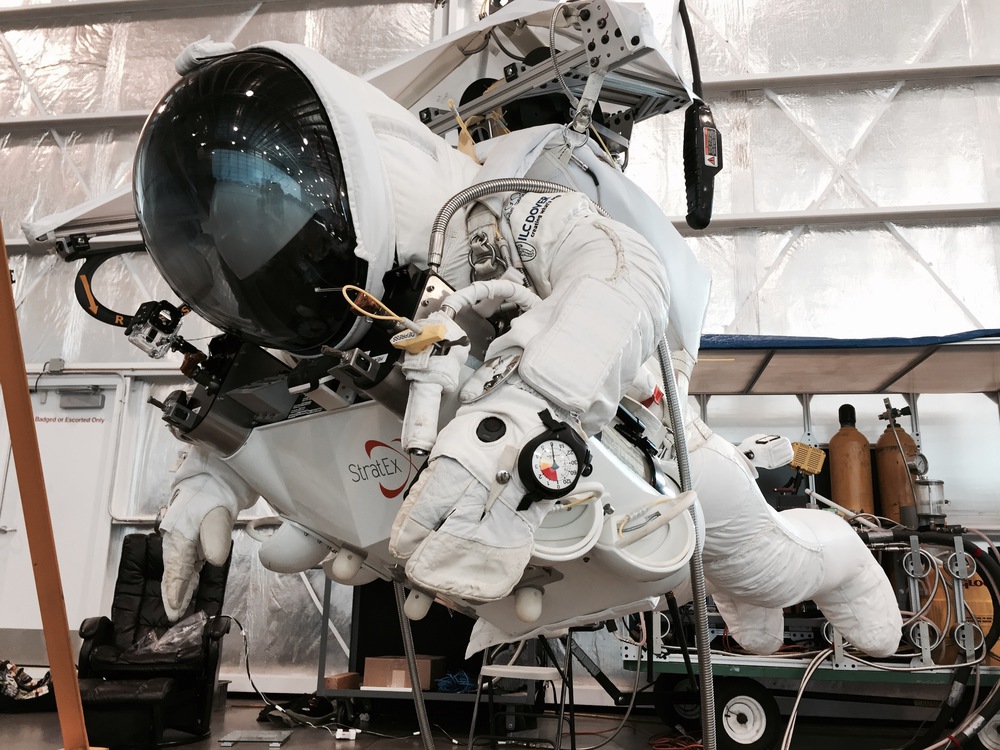Recommended Posts
Hooknswoop 19
QuoteGenerally speaking about "the big one", it's thought that a nuke of any type is going to break up a comet into just more chunks that are still going to impact perhaps causing a wider area of destruction. Would you rather be hit by a bullet or a shotgun?
But don't smaller objects burn up in the atmosphere? If you could break up an object that would get through the atmosphere into enough pieces, they would burn up, right? Or at least a bunch of small impacts, which happen all the time, vs. a single, large impact?
Just thinking out loud.
Derek
jakee 1,645
QuoteBut don't smaller objects burn up in the atmosphere? If you could break up an object that would get through the atmosphere into enough pieces, they would burn up, right? Or at least a bunch of small impacts, which happen all the time, vs. a single, large impact?
Maybe, but Tempel 1 is thought to be around 6km across with a mass of around a Billion tonnes. Break it into a thousand pieces and thats still a million tonnes each.
Hooknswoop 19
Quote
Maybe, but Tempel 1 is thought to be around 6km across with a mass of around a Billion tonnes. Break it into a thousand pieces and thats still a million tonnes each.
OK, so we do not have the capability to defend against a realy large object yet. But a smaller one that would pose a danger to the Earth could be blown into small enough objects, right? If an object triple the size of what would be burned up in the atmosphere could be blown into 3 pieces, we would be safe, right?
Derek
Guest

I haven't looked at the NASA site yet - did it leave a crater? If so, how big?
Edit to add - it looks like the probe was jinking on its way to the target - that would explain the apparent jitter in the probe-view video.
Oh man, this is so kewl!!!
.
Quote
Maybe, but Tempel 1 is thought to be around 6km across with a mass of around a Billion tonnes. Break it into a thousand pieces and thats still a million tonnes each.
It's still a step forward. Letting the atmosphere work on 1000 spheroids instead of one big one significantly decreasing the kinetic energy that impacts. Less mass at a lower velocity.
And who says we only get to fire one shot?
jakee 1,645
QuoteOK, so we do not have the capability to defend against a realy large object yet. But a smaller one that would pose a danger to the Earth could be blown into small enough objects, right? If an object triple the size of what would be burned up in the atmosphere could be blown into 3 pieces, we would be safe, right?
I guess so, there are much smaller things than tempel one that could do very serious damage. And hey, anything would be worth a shot right?
mr2mk1g 10
jakee 1,645
QuoteOn the other hand instead of 1 big comet thing coming to hit us we could end up with 1 big radioactive comet thing coming to hit us... still... anythings worth a shot under the circumstances.
Well if we are unlucky enough to have a large comet or asteroid hit us then it'll probably go on to hit Sellafield or some other power station any way
Of course many near misses from much darker non-icy objects from the asteroid belt aren't even detected until the object has flown past us, so we may not even have a chance to try anything.
billvon 3,171
> could end up with 1 big radioactive comet thing coming to hit us...
Not really an issue. The amount of uranium/uranium decay products present in a typical U-235 bomb is nothing compared to what a coal fired power plant puts out in a year.
QuoteBut don't smaller objects burn up in the atmosphere?
All that burning up in the atmosphere will contribute to global warming. Furthermore, it will release water vapor into the atmosphere, which is the leading greenhouse gas.
Creating smaller pieces that can cause the earth to warm up in a matter of days or hours, even a degree Celsius, is bad.
My wife is hotter than your wife.
Hooknswoop 19
QuoteAll that burning up in the atmosphere will contribute to global warming. Furthermore, it will release water vapor into the atmosphere, which is the leading greenhouse gas.
Creating smaller pieces that can cause the earth to warm up in a matter of days or hours, even a degree Celsius, is bad.
As bad as getting creamed by a huge object?
Derek
QuoteAs bad as getting creamed by a huge object?
That would result in a nuclear winter instead.
Hooknswoop 19
QuoteThat would result in a nuclear winter instead.
Right, my question is, which is worse? Several objects burning up in the atmosphere or one big one hitting the planet?
Derek
billvon 3,171
Ah, but done far enough out, you nudge it enough to miss the planet entirely. A change of speed of 1cm/sec out in the oort cloud is enough to change a comet's orbit by 2000 miles by the time it's at perihelion. So you detonate your explosive some distance from the comet and allow the pressure to change the orbit, rather than trying to vaporize it.
QuoteQuoteAll that burning up in the atmosphere will contribute to global warming. Furthermore, it will release water vapor into the atmosphere, which is the leading greenhouse gas.
Creating smaller pieces that can cause the earth to warm up in a matter of days or hours, even a degree Celsius, is bad.
As bad as getting creamed by a huge object?
Derek
Did you detect my subtle sarcasm in that comment?
My wife is hotter than your wife.
quade 4
Quote> it's thought that a nuke of any type is going to break up a comet into just more chunks . . .
Ah, but done far enough out, you nudge it enough to miss the planet entirely. A change of speed of 1cm/sec out in the oort cloud is enough to change a comet's orbit by 2000 miles by the time it's at perihelion. So you detonate your explosive some distance from the comet and allow the pressure to change the orbit, rather than trying to vaporize it.
But you still need to do the basic science of this experiment BEFORE you even think about trying it.
Are comets hard like an ice cube, somewhat looser held together like a snowcone or really loosely held together like a Slurpee?
Makes a pretty big difference as far as what is going to happen if a shock wave of any type were to hit it.
The World's Most Boring Skydiver
billvon 3,171
>you even think about trying it.
Why? Let's go blow up a comet. It will give us some interesting data (think of the opportunities for spectrographic analysis alone!) and it will get rid of a nuclear weapon that otherwise might be used here.
Heck, we could try to nudge it into a collision with Mars. With what we know about Mars so far, we might just get enough CO2 and water vapor in the atmosphere after the collision to reach that magic number of 1PSI atmospheric pressure, which is a very cool number indeed.
And if we miss, so what? We know what to fix next time.
>Are comets hard like an ice cube, somewhat looser held together
>like a snowcone or really loosely held together like a Slurpee?
Only one way to find out!
I feel it, when I sorrow most;
'Tis better to have loved and lost
Than never to have loved at all.
Quote
Heck, we could try to nudge it into a collision with Mars. With what we know about Mars so far, we might just get enough CO2 and water vapor in the atmosphere after the collision to reach that magic number of 1PSI atmospheric pressure, which is a very cool number indeed.
And if we miss, so what? We know what to fix next time.
this sounds like a script for futurama.
The so what would involve destroying the earth in an attempt to practice saving it.



.thumb.jpg.4bb795e2eaf21b8b300039a5e1ec7f92.jpg)

However I am a Libra, and we Libras don't believe in Astrology.
The only sure way to survive a canopy collision is not to have one.
Share this post
Link to post
Share on other sites